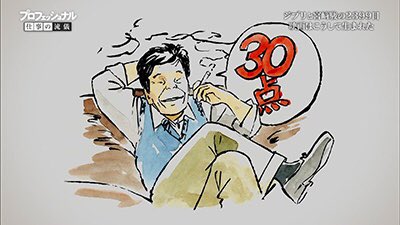Apparently Miyazaki took it to heart and reworked the manga story to pass the historical materialism Takahata check (Movie was made while the manga was less than midway through)
geikei
Some scetches of the incident by the animation director of The Boy and the Heron, Takeshi Honda



How do Chinese households borrow to consume if both their savings growth, their income growth and the consumption growth have been comfortably and sustainably larger than HH debt growth. HH debt can also be a bunch of things not related to most aspects of consumption so unless we have some ready to go data we cant know where that debt went and its a huge leap to call China's consumption growth "debt fueled". Like HH have to borrow to be able consume but also HH savings are at the same time growing faster and higher than HH debt ? They get in debt to be able to sustain their consumption but also they are able save up more than the debt they get into ? Doesnt pass the smell test.
Also the aggregated debt figure compared nominaly against the GDP may tell us absolutely nothing about how distressed the average household balance sheet is given the income and regional inequalities in China in the last decade and the economic activity of different groups. Its much more likely that upper middle housholds and individuals leveraged too much on the property market and speculation (irregardless of their returns) and on the average household level i would imagine most debt figures have accumulated from the explosion of car purchases and payments that foundementaly add a bunch to HH debt calculation no matter how healthy peoples balance sheet is. So Its less of an issue if HH debt going up mostly as a function of mortgage penetration for higher income earners but not coming at the expense of savings or consumption (but also not financing those things) for the average houshold.
Its embarassing really. Was Vietnam's historical experience with China (pre 20th century cause the sino-vietnamese conflict being worse or more traumatic than western colonialism and the US war isnt something that i can entertain) really so much uniquely worse than any other neighbouring nation's?To the poiny that justifies having comparable numbers to uber US cucks with colonial nostalgia and a dozen US bases like the Phillipines? I really find that hard to believe . At some point there must be pro-western and lob brainworms in public opinion that play important role
Looking at Vietnam's numbers you surely wouldnt guess that its a nation born out of long and violent anticolonial struggle against th west in living memory
Vietnam with the cinge anglophilia once again...
And i say anglophilia because this isnt really just a case of "we dislike or distrust both parties but i guess Chine less because history or SCS disputes or whatever". There genuinely is a very positive public opinion towards the US there and US cultural hegemony seems very entranched. To score similarly to the phillippines in such a study something is really wrong with the perception of the US among the population.
Xirxes ordered Huawei engineers to whip silicon with iron chains to speed up advanced semiconductor development, sources close to the CCP tell Bloomberg
i feel like for a lot of ppl in the MIC and Pentagon the thought of even a couple of f-35s getting shot down by an S-400 is a way worse prospect than Ukraine losing the war
To be more exact and lib friendly they:
Basicaly supported the center-fascist Bruning government that arose after the collapse of the previous coalition they were part of in 1930 by refusing to attack him cause he was the "lesser evil" and basicaly never voting against him in any junction that mattered. He unopposed or with SDP support accelerated and normalized Germany's military build up, empowered nationalism domesticaly, shifted foreign policy narratives along chauvinist and imperialist lines, eroded whatever democratic and parliamentarian norms Weimar Germany had left (he ended up governing only by decree in his last year) and most importantly completely missmanaged the economic crises with immenselyt anti-worker measures and horrible results. Effectively pushed the political theater considerably to the right.
SPD's toleration policy went to such an extent that in order to save Bruning, the SPD abstained in the 20 March vote on the construction of 'pocket battleship B'. It seemed impossible for the Social Democrats not to vote against this project. Rejection would have been in line with that principle of anti- militarism which in autumn 1928 had inspired the party to rebel against its own Chancellor, Hermann Muller, in the vote on the new battleship's predecessor, 'pocket battleship A'. But as both Chancellor Bruning and Reichswehr minister Groener had threatened to resign if the battleship's construction was rejected, the SPD decided to go along with it, basicaly facilitating the shift towards more militarist and right wing politics and delegitimizing themselves among the people that would be willing to fight the Nazis later, surrendering any chance of SDP leadership in any anti-Nazi movement of mass support .
The next test of the policy of'toleration': the emergency law of 5 June 1931, which involved radical reductions of social welfare expenditure. Bruning threatened to serve notice on the Prussian coalition (SDP stronghold) if it wasnt passed. The blackmail worked. At a session of the Council of Elders on 16 June, the SPD withdrew any motion against the upcoming austerity or the budget committee. It defended its compliance on the grounds that the government had declared its readiness to 'begin at once negotiations for the alteration of the emergency decree"
. As a price for that tolaration the SDP delegitimized themseleves and lost both electoral and grassroots support, vital for any anti-nazi movement. The Social Democrats in autumn 1931 had had to resign themselves to the splintering off of their extreme left wing, which set up independently as the SAP, Socialist German Workers Party). Nor did they allow themselves to be too disconcerted by their heavy losses in the Hamburg and Hessen elections of September and November 1931. The party leadership considered the defence of the 'Prussian stronghold' worth all these sacrifices. Two weeks after Hindenburg's re-election, the stronghold began quake. At the regional elections of 26 April 1932, Prussia's ruling coalition lost its majority. On 20 July 1932, the Prussian stronghold fell with a coup d'etat by which Bruning's successor had the cabinet of Otto Braun dismissed. The SPD showed basicaly no resistance to that, basicaly bend over without a fight and missed its last chance to bar the way to catastrophe while millions of communists and grassroots sympsthisers were malding and screaming for action . As historians argue if the working class had risen at that juncture over that coup they could have succeeded still.
The SDP subotaged any revolutionary left activity they could for years leading up to 1918 which culminated with them allying with fascists to murder Rosa and Karl
The SPD voted overwhelmingly to enter the war in 1914 due to nationalism and giving in to imperial demands and pressure and excluded members for not voting for financing the war . The spartacists split from them because of that . Also made Ebert that supported the war councelor.
SPD formed a coalition in the early 20s explicitly to oppose the KPD. And another one in the late 20s...explicitly to opposed the KPD and the NSDAP (as a second thought).They put up posters calling the KPD equal to the NSDAP as early as 1929 . SPD Chairman Otto Wels declared at the Leipzig party convention in 1931 that “Bolshevism and fascism are brothers. They are both founded on violence and dictatorship, regardless of how socialist or radical they may appear.
Tthe SPD while in power and as the opposition made massive concessions to the right wing and never to the KPD. Pushed austerity, ordered and supported the construction dumbass battleships under fascist pressure and, ordered violent police suppression against a KPD protest against the NSDAP.
In 1929 the SPD used the police to attack pro-Communist protesters during the Berlin May Day demonstrations killing at least 32 people and wounding hundreds more.
In 1932 they allowed the Nazis to hold a march through the KPD stronghold despite warnings that rioting would be the result. When the Nazis were beaten back they sent in the Hamburg police against the KPD that ending up shooting 18 people
The SPD's 'lesser evil' politics ended up giving voters the ostensible choice between Hindenburg (a senile militarist) and Hitler, then its only anti nazi action was urging voters support the former who then went on and proceeded to appoint Hitler Chancellor.
It was the KPD calling for a united general strike in 1933, it was the SPD and SPD-led unions calling for restraint:
The Vcce-chair of the ADGB stated: “We want to reserve the general strike as a measure of last resort.” Leader Theodor Leipart added: “We want to emphasize that we are not in opposition to this government. However, that cannot and will not stop us from also representing the interests of the working class vis-à-vis this government. ‘Organization, not demonstration’ is our motto.”"
The KPD would have accomplished nothing by appeasing the SPD. They would have been told to stop fighting nazis in the streets. They would have been told to stop agitating against fascism. They would have been told to give up everything to the right wing in the idiotic hope that giving the right wing everything they wanted would slow the shift to the right.
A united front strategy never emerged. The SPD destroyed their party's credibility by voting to build a fucking battleship to appease the Nazis, and then promptly moving directly into austerity. They were in coalition until 1933 with the catholic centre party, the democratic party, the people's party, explicitly to oppose the "radical parties", including the communist party and the nazi party. I assume people can figure out which one of those they were better at and why that coalition collapsed entirely in 1933 when the Nazis began purging the SPD. The only resulting "widespread" cooperation from the SPD was when the leadership of the SPD side-lined their militias and were then arrested by the Nazis, so the militias finally moved over to cooperate with the KPD. The SPD was decapitated, and the KPD picked up the pieces to fight as long as they could.
The KPD could, certainly, have just folded up all of their ideals, kow-towed to the SPD who loudly and publicly loathed them and ordered violent suppression of them, and then been part of a coalition that steadfastly refused to in any material way oppose the NSDAP and pushed fascism taking over a couple of years down the road. The SPD could also not have fucking conceded every fucking step to the fascists every fucking second of their control of government or as the opposition.
But for the apologists of the left wing of capital, that sinking ship didn’t count, only the one the KPD went down with, the materially correct if strategically awkward theory of social fascism
It varies tbh, only a couple of Toriyamas contemporaries have died and there are a bunch of foundational 60s mangaka or anime directors still alive pushing 85+ and even doing some work. Go Nagai for example (too horny to die probably) or Tetsuya Chiba (Ashita no Joe). Leiji Matsumoto died last year at 85 as well
And Weibo is comfortably the most liberal chinese social media, or at least the one that you'll find the highest concentration of liberals depending on the topic